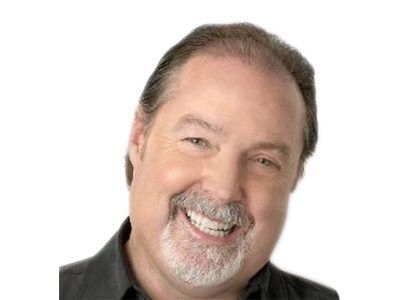Anti-science bills hit statehouses, stripping away public health protections built over a century
News > Health News

Audio By Carbonatix
7:07 AM on Tuesday, October 21
By MICHELLE R. SMITH and LAURA UNGAR
More than 420 anti-science bills attacking longstanding public health protections – vaccines, milk safety and fluoride – have been introduced in statehouses across the U.S. this year, part of an organized, politically savvy campaign to enshrine a conspiracy theory-driven agenda into law.
An Associated Press investigation found that the wave of legislation has cropped up in most states, pushed by people with close ties to Health and Human Services Secretary Robert F. Kennedy Jr. The effort would strip away protections that have been built over a century and are integral to American lives and society. Around 30 bills have been enacted or adopted in 12 states.
Trump administration officials are directing activists to push anti-science legislation in the states – where public health authority rests – with the ultimate goal of changing laws and minds nationally.
The effort normalizes ideas fueled by the anti-vaccine movement that Kennedy has helped lead for years. His Make America Healthy Again agenda masks anti-science ideas while promoting goals such as making food more natural or reducing chemicals. Meanwhile, vaccination rates continue to fall, allowing the infectious diseases measles and whooping cough to make comebacks as Kennedy has sought to broadly remake federal policies on public health matters including fluoride and vaccines.
Kennedy’s allies dispute that their agenda is anti-science or driven by conspiracy theories, but many experts disagree.
“The march of conspiracy thinking from the margins to the mainstream now guiding public policy should be a wake-up call for all Americans,” said Devin Burghart, president and executive director of the Institute for Research and Education on Human Rights, who has tracked the anti-vaccine movement for decades. “People are literally going to die from it as a result.”
Ashlee and Erik Dahlberg of Lowell, Indiana, lost their 8-year-old son, Liam, to a vaccine-preventable disease in April.
“I thought having the vaccines would protect our children,” Erik Dahlberg said. “Unfortunately, it did not because other kids, other adults, need to be vaccinated as well in order for it to work.”
Liam was particularly vulnerable because he had severe asthma and allergies. He was vaccinated against Haemophilus influenzae type b, or Hib, but it caused his brain to swell and killed him less than two days after he complained of a headache. Hib is transmitted by respiratory droplets, often spread by coughs and sneezes. Doctors said Liam’s case likely stemmed from someone unvaccinated, Ashlee Dahlberg said.
With two other children, the Dahlbergs worry about living in one of the many U.S. communities with low immunization rates. State statistics show one in five kindergartners in their county don’t meet vaccination requirements.
“There’s no pain that is worse than the pain of losing a child,” said Ashlee Dahlberg, who brings an urn with Liam’s ashes on family camping trips so he won’t be left out. “I do not – and can’t – live through the loss of another.”
The Dahlbergs and others are fighting a strong anti-science movement that stresses “health freedom” but disputes proven health measures. Experts say global vaccine efforts have saved more than 150 million lives since 1974, cavities have declined dramatically since community water fluoridation began in 1945, and milk pasteurization has saved millions from foodborne illness.
Despite those successes, activists spread false conspiracy theories, some dating back decades, that safe vaccines injure or kill large numbers of people, that fluoride is used to poison the population, or that pasteurization makes milk less nutritious and primarily benefits the dairy industry.
In its analysis of legislation, AP focused on these three public health policies, which have clear medical evidence behind them and are targets of the Make America Healthy Again movement. AP searched 2025 legislation in all 50 states, analyzing more than 1,000 bills collected by the National Conference of State Legislatures and the bill-tracking software Plural for whether they undermined science-based protections for human health.
Anti-vaccine bills – 350 of them – were by far the most common. They come at the issue from various angles: barring discrimination against unvaccinated people, creating the criminal offense of vaccine harm, requiring blood banks to test for evidence of vaccinations and instituting a 48-hour vaccine waiting period.
Legislators acknowledge they sometimes draw inspiration from other states: Bills in numerous places target mRNA vaccines, which were credited with saving millions of lives during the COVID-19 pandemic. Two bills in Minnesota falsely designate them as “weapons of mass destruction.”
Since vaccines became more politicized during the pandemic, more extreme vaccine bills have passed, said Dorit Reiss, a vaccine law expert at UC Law San Francisco.
“At times of uncertainty and trouble, conspiracy theories have more of a wedge,” Reiss said.
Most bills haven’t passed – some died and others are pending – but at least 26 anti-vaccine laws have been adopted in 11 states this year.
Most of those bills were supported by at least one of four national groups connected to Kennedy: MAHA Action, Stand for Health Freedom, the National Vaccine Information Center and the Weston A. Price Foundation.
The groups also opposed dozens of science-driven bills, including one that would protect people by tightening rabies vaccine requirements for pets.
There’s a web of connections among the groups and Kennedy. MAHA Action has been run by people close to him, including his longtime book publisher, Tony Lyons, and former campaign staffer Del Bigtree. Stand for Health Freedom was co-founded by Sayer Ji, who now advises the group and volunteers with MAHA Action.
The group Kennedy used to lead, Children’s Health Defense, was a sponsor of conferences held by NVIC and Weston Price. Kennedy has been a featured speaker for both groups. When Kennedy purged the federal committee that advises on vaccines, he picked NVIC’s research director as a new member.
While the groups don't always agree or coordinate efforts, they sometimes work together. NVIC, Stand for Health Freedom and Weston Price collaborated on a June letter to President Donald Trump's Religious Liberty Commission, asking that the federal government stay out of state public health lawmaking — including religious exemptions for vaccines.
Anti-vaccine activists have noticed the tide turning away from science-driven legislation, and there has been a reversal: NVIC said that in 2015, it opposed six times as many bills as it supported. Last year, it supported more than twice as many bills as it opposed.
In an email to AP, NVIC leader Barbara Loe Fisher called the federal response to the COVID-19 pandemic heavy-handed but a wake-up call in state legislatures, where "lawmakers understood the danger to liberty posed by vaccine mandates in a way they had not understood it before.”
She said mandatory vaccination is bad public health policy.
The groups AP tracked send out alerts, organize phone campaigns, flood lawmakers’ inboxes and social media, hold Zoom calls with activists nationwide, and send members to testify in statehouses.
Lyons told AP the point of the calls is to educate people. He objected to the use of the terms anti-science and conspiracy theories, saying, “It’s just an inflammatory statement meant to get millions of people to think something bad is happening.”
The groups' work reflects the small anti-vaccine movement’s growing clout, said Northe Saunders, president of American Families for Vaccines. Advocates know how to raise money for candidates and create anti-vaccine champions, he said, and use legislative maneuvers to hold up some bills and help others past hurdles.
“They’re really a sophisticated political operation as opposed to just a couple of parents that don’t want to vaccinate their kids,” Saunders said.
In Indiana, Republican Rep. Bruce Borders sponsored two bills at the request of the group Hoosiers for Medical Liberty. One would allow people to opt out of employer vaccine mandates; another would require vaccine manufacturers to conduct certain safety studies.
Borders, who owns an insurance company and works as an Elvis impersonator, said he’s driven by concern about his grandson, who he believes developed autism after getting vaccinated – though there’s no credible scientific evidence that's possible.
He said these bills aren’t anti-science and that he respects doctors but believes some medical questions deserve more scrutiny.
“I’ve done tons of research on this issue because of my grandson,” Borders said. “I would say that my study on these issues would equal that of many people in the medical field.”
People are often drawn into anti-science ideas in a roundabout way, Reiss said. They might come to the MAHA movement with legitimate concerns about nutrition, for example, then be exposed to others who believe forces are conspiring to keep people sick.
“Misinformation is infectious,” she said.
The overlap in conspiracy-driven ideas is evident in the slate of bills supported by some groups riding MAHA’s popularity. MAHA Action and Stand for Health Freedom both supported legislation to ban fluoride in drinking water. Stand for Health Freedom and Weston Price both opposed a North Carolina bill they said threatened raw milk sales.
Their arguments often rely on the idea of staying healthy naturally. Stand for Health Freedom, which did not respond to AP's requests for comment, told its followers, “Water should hydrate not medicate” while pushing an anti-fluoride bill. Weston Price runs a campaign for raw milk, which it calls “real milk,” and the group’s website contains unproven claims it can help treat asthma, allergies and eczema.
AP found more than 70 bills that would roll back access to fluoride or make it easier to sell or consume raw milk products. Many fluoride bills would prohibit its addition to water systems outright. One in Pennsylvania was dubbed the “Fluoride Choice Act” by its sponsor, who said individuals would be empowered “to make informed health decisions” and could get fluoride supplements or topical treatments instead.
On raw milk, bills would allow for sales beyond farms in Arkansas, decriminalize its sale in Hawaii and let Oklahoma farms sell raw donkey milk.
Sally Fallon Morell, president of Weston Price, told AP the benefits of raw milk are immense and the risks minimal, denying that such beliefs are conspiracies. Though she shared studies touting benefits, experts say drawing direct links is difficult. The U.S. Centers for Disease Control and Prevention says pasteurized milk offers the same nutritional benefits without the risks.
Meanwhile, raw milk continues to spark outbreaks, with one in Florida sickening 21 people in August.
In response, Florida Surgeon General Dr. Joseph Ladapo said he supports people’s decision to consume raw milk for potential benefits.
“Floridians have the freedom to make informed health choices,” he wrote on social media.
Other anti-science ideas are also in full bloom in Florida.
Along with Utah, Florida banned fluoride in public drinking water this year. Experts stress that fluoride not only prevents tooth decay but staves off problems and even heart issues.
A coalition including MAHA Action, Stand for Health Freedom and Children’s Health Defense backed a slate of bills that went after vaccines, fluoride and other parts of the MAHA agenda. It organized buses to bring people to the Capitol for a legislative day.
MAHA Action has held regular Zoom calls since the summer featuring Trump administration officials and Kennedy advisors who emphasize the importance of advancing MAHA priorities in the states. In Zoom chats obtained by AP, activists ask for talking points and to get connected to local groups.
Kennedy’s deputy chief of staff, Stefanie Spear, told activists on one call that it's critical to “get activated” in state government: “That is going to be when we move the needle enough to enact federal legislation.” A spokesman for Kennedy and the Department of Health and Human Services would not comment to AP for this story.
On the same call, Ji celebrated a new Florida law making “geoengineering” a felony. Its sponsor explained the bill addresses constituents' concerns about chemtrails, invoking a conspiracy theory that the condensation trails that appear in the sky behind jets are actually chemicals they're spraying into the atmosphere.
Ji told AP the bill “reflects legitimate public concern ... not something that should or can be cynically dismissed as ‘conspiracy’ theory.”
“The positions I advocate for — on issues like fluoride, vaccines, and environmental health — are rooted in credible scientific literature and the public’s right to make informed choices,” Ji wrote in an email.
Meanwhile, Kennedy is elevating anti-science ideas nationally. This spring, a wellness influencer shared video of Kennedy doing shots of raw milk with him at the White House.
Less than a week later, Emily Marris’ toddler, Brooklyn, was hospitalized and nearly died after drinking raw milk.
The Southern California mom did research online, finding a homesteader Facebook group and buying raw goat’s milk from a seller who called it “clean and tested.” Retail sales are legal in California.
Brooklyn ended up on dialysis and a ventilator, suffering three cardiac arrests before finally turning a corner. She now has high blood pressure and walks with a limp.
Marris believes it’s a dangerous path to make raw milk more available.
“You’re going to have the average mom like me that thinks they’ve done their research, think they’re doing something to help their baby and end up hurting their baby,” she said.
Lawmakers fighting for science-based policies say what’s missing in the discussion is concern for the public good.
Rep. Andy Vargas, a Massachusetts Democrat, has been sponsoring legislation since 2019 to eliminate religious exemptions from childhood vaccines. Despite high vaccination rates in Massachusetts, Vargas said, pockets in every county have lost herd immunity for measles.
People who want to participate in public life have responsibilities to others, he said. “It’s just part of the social contract.”
In Indiana, Democratic State Rep. Maureen Bauer, of South Bend, said these issues are often falsely framed as parents’ rights and individual freedom.
“If your personal decision puts others at risk, it is no longer a personal decision,” she said. “You are impacting the freedom of others.”
Ashlee Dahlberg said that includes her son Liam. Though there’s no way to know for sure who exposed him, research shows unvaccinated people are more likely to carry Hib and spread it. Severe cases dropped by over 99% after the federal government recommended the vaccine in 1991.
In recent years, however, overall vaccination rates have dropped.
After Liam died, the Dahlbergs learned that vaccine policies vary by state. Hib shots are recommended, not required, to enter pre-kindergarten in Indiana, though they are required in Illinois, a 10-minute drive from home. These states and nearly every other allow parents to opt children out of vaccine mandates for nonmedical reasons such as religion.
Ashlee Dahlberg channeled her anger into purpose, starting a change.org petition to eliminate religious exemptions in public schools nationally. While most feedback has been positive, she said, they’ve received hateful messages, including: “Your son deserved to die.”
But, Dahlberg said, “I want to reach those parents who are on the fencepost about vaccinations.”
The Dahlbergs feel it’s up to them to protect their two surviving children from vaccine-preventable diseases. They can’t rely on their government anymore.
They’ve considered homeschooling 6-year-old Ava and 11-year-old Khloe. For now, they’ve made arrangements with Ava’s school to ensure every student in her class is vaccinated. Like her brother, she has severe asthma. In common areas such as hallways or buses, she wears a mask.
On the first day of school this year, Dahlberg called Ava to the kitchen to take puffs from her twice-a-day inhaler before ushering the girls outside for first-day pictures. They walked past the collection of mementos reminding them of Liam – his handprint, a photo of him with his dirt bike, a plaster cast of his hand in his mom’s. The girls held a photo of their brother as they stood near a flowering crab apple tree planted in his memory.
Shortly before the bus came, Ava broke her mask, ran inside and grabbed another. Dahlberg instructed: “You are to wear that on the bus. You do not take it off.”
Bus 21 finally made its way down their street. As Ava got on, her mother nervously waved goodbye.
___
The Associated Press Health and Science Department receives support from the Howard Hughes Medical Institute’s Department of Science Education and the Robert Wood Johnson Foundation. The AP is solely responsible for all content.


























